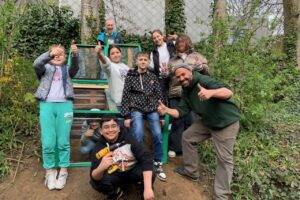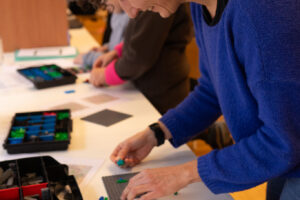This activity is only available in FR
Workshop where young people learn the anatomy of a plant.
A tart with leaf stalks … of rhubarb? A tuber puree … of potatoes? Stewed pea seeds and fried carrots from carrots? What do we all actually eat when we talk about five fruits and vegetables a day? Let’s look at the anatomy of the plants (fruits and vegetables) on our plates, because everything in the plant world is a real treat!
During this workshop, children ages 8 to 12 will learn to make a connection between food in everyday life and the origins of the products we eat. By having fun in this “eating laboratory,” children gain an appreciation for the fruits and vegetables on their plates and learn about botany and the food pyramid.


